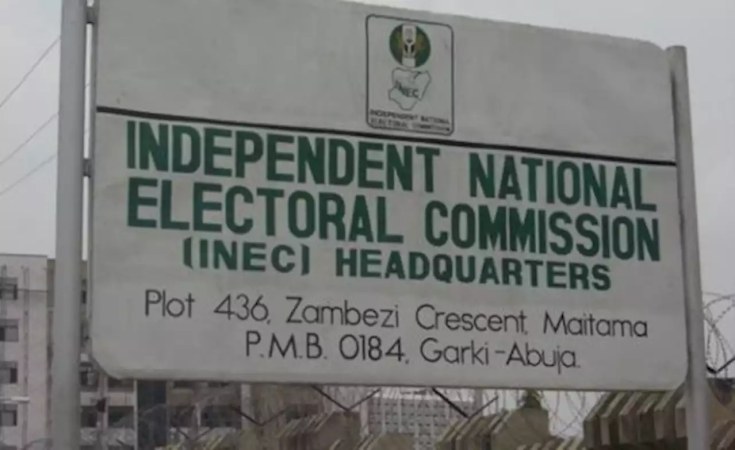"An aggregated 63% of the respondents our trained observers spoke with, made their voting choice based on factors such as party affiliation (34.28%), previous choice of a presidential candidate (5.38%), governorship candidate (3.97%)."
A civil society organisation, OrderPaper Advocacy Initiative (OAI), has said 63 per cent of voters that participated in the recent state assembly elections voted for candidates based on party affiliation and previous choices of presidential and governorship candidates.
It also said 61.35 per cent of voters cast their ballot in the National Assembly elections based on party affiliation and choice of presidential candidates.
This was contained in a report, titled "Consolidated Report on the 2023 State Assembly Elections," released by the organisation on Sunday.
The Independent National Election Commission (INEC) conducted the assembly and the governorship elections on 18 March. While the assembly elections were held in the 36 states of the federation, the governorship was conducted in 28 states.
"An aggregated 63% of the respondents our trained observers spoke with, made their voting choice based on factors such as party affiliation (34.28%), previous choice of a presidential candidate (5.38%), governorship candidate (3.97%)," the report signed by the Executive Director of OAI, Oke Epia, said.
The organisation also said while 81.59 per cent of sampled voters that participated in the election across the country had prior knowledge of the candidates, only 37.39 per cent of them voted for these candidates based on individual merits.
On the National Assembly elections held earlier on 25 February, OAI said 61.35 per cent of voters cast their ballot based on party affiliation and choice of presidential candidates.
"61.35% of voters made their voting choices at the Senate and House of Representatives elections based on party affiliation and choice of presidential candidates," the report stated.
Voter suppression, low turnout
The report also detailed cases of voter suppression and punctuality by electoral officials and vote buying.
OAI said in terms of punctuality, there was an improvement during the governorship and houses of assembly elections.
"In the area of punctuality on the part of polling officials and opening of polling units, there was a marked improvement from the National Assembly polls, where only 61.34% of the polling units opened on time.
"84.29% of the polling units sampled opened on time in line with INEC's guidelines for polls to open at 8:30 am. The average time of arrival and opening of polling units generally stood at 9:00 am in many parts of the country.
"There were, however, large reports of low voter turnout resulting from voter intimidation by thugs, political party agents and voter apathy linked to the perceived mismatch of voting and results announced in the February 25 Presidential and National Assembly elections.
"The issue of voter suppression was flagged, especially as thugs disrupted voting and deployed violent intimidation to prevent voters from coming to cast their vote in some areas in Lagos, Oyo, Nassarawa, and Imo, among others. Similarly, there were reported cases of vote trading by political party agents in states like Cross River, Adamawa, Ogun, Ondo and Imo. Particularly in Imo, there were some cases of systematic vote-buying.
"It is our hope that this finding on the bandwagon effect will raise the much-needed awareness and sensitisation among stakeholders in the democratic project and attract more attention to the legislature before, during and after post-elections to facilitate improved service delivery by this most critical arm of government at the state level," the report said.
Methodology
On the methodology used to gather its data, the organisation said it deployed observers in over 300 of the 993 state constituencies across the country during the state elections on 18 March. It said the observers collected the data by speaking with voters.
OAI stated that it carefully recruited, empowered and deployed hundreds of active citizens from its citizen legislative accountability programme.
In addition, OAI said it set up a Situation Room for the State Assembly elections with the objective of observing a possible bandwagon trend in the legislative elections, as well as ascertaining compliance of the election management body- the Independent National Electoral Commission (INEC) - and other stakeholders with the electoral law and INEC guidelines.


